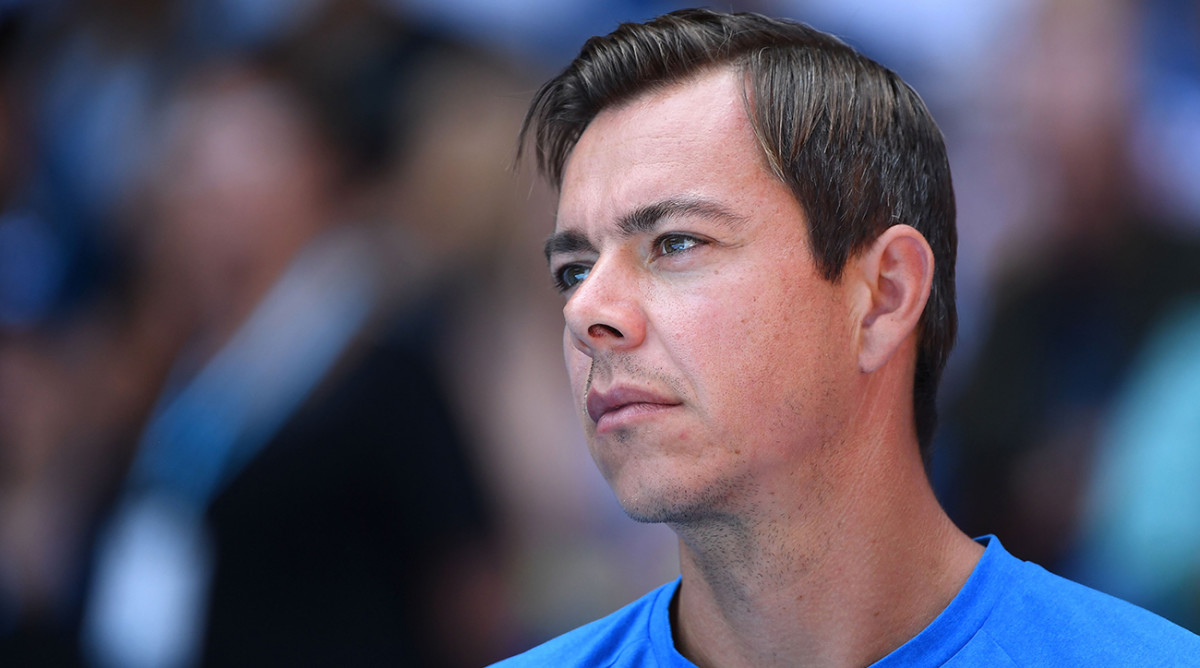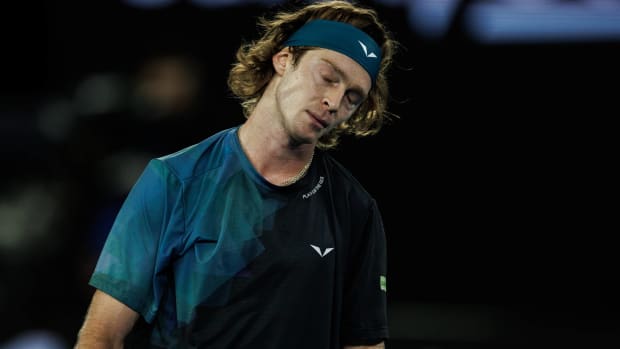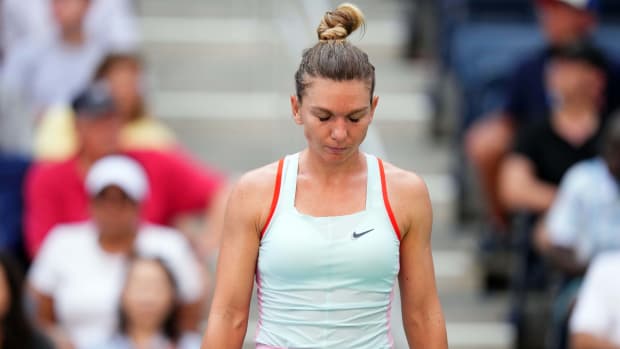Sascha Bajin on Coaching Some of the WTA's Biggest Stars | Beyond the Baseline Podcast

On the latest edition of the Beyond the Baseline Podcast, host Jon Wertheim talks with Sascha Bajin, current coach of Kristina Mladenovic and former coach of Naomi Osaka. After splitting from two-time Grand Slam champion Osaka in February, Bajin signed on with Mladenovic and he discusses the details of his coaching relationship with both players and the approach he takes in his role with different players. Wertheim and Bajin also discuss whether he would consider coaching a men's player; how he handles information when switching between different players; what he has learned from some of his former clients, such as Serena Williams and more. Bajin also talks about his forthcoming book, Strengthen Your Mind,which will be published in Japanese in July and details how he transformed Osaka's mindset and gives insight into his years working with Serena.
Listen to the Beyond the Baseline podcast here and subscribe to the podcast on iTunes or on Stitcher. The following transcript has been edited and condensed for clarity.
Jon Wertheim: Were you drawing on your experience with Serena [Williams] and [Victoria Azarenka] and Caroline [Wozniacki], or is this [book] specific to Naomi Osaka?
Sascha Bajin: This is not specific to Naomi. There are many chapters in the book about what I've come across, about what I think could really help people in making their lives a little bit easier. It starts with setting goals, from body language to getting enough rest to understanding how important sleep is. Making sure you change your environment. Things that you can use on a daily basis. We as people can travel a lot and it's really hard. But at the same time there's so much benefit to working on changing your environment every now and then. And I really want to share what I've learned from my life on tour. I want to tell them: change up your workplace once in a while. Invest into a new desk, buy a plant, a new light—just minor changes that I found when I'm on tour or from going into same gym for weeks. My energy kind of drops a little bit because I'm so used to the environment and it's nothing new. And these are little things that I've picked up along the way.
JW: When you talk to players, a lot of times they talk about their health but a lot of times they talk about their fatigue. When you’ve been on the road for a long time and you’re a little jet lagged. There are no home games in tennis right. You're basically always in a hotel room and you're always on the road. How else can players use that to their advantage?
SB: It starts with a routine that you get used to then after a while, players have been to the same spot so many times, so they already have a restaurant like and they have the places they feel most comfortable in when they are traveling. It’s all about adjusting that slowly. You know it's not just about all push, push, push, push, push but you also need to focus on recovery. So then of course you have to adjust you know you're sleeping. We try to find like something to put over the mattress and maybe next year we want at least two nights of sleep and then maybe sacrifice to good practice days and not getting there rest we need because we know immediately at this hotel I did this last year it helped me stand strong you know. So other than that jack leg you know jet lag it's something that's very tough you know. Luckily the guys who do have a fairly job where they go to work they don't have to worry about it too much. And there was no secret about it was just absolute faith. It was a first day. But there's certain ways of looking at things and doing stuff that maybe you like and especially in a city you are very familiar with how help people go to get a little quicker.
JW: I'm hearing you tell me say this and I’m thinking about the very, very top players who don't go through airport security lines like the rest of us and they stay wherever they want to stay and can bring child care with them. How big an advantage do you think it is for Roger or Rafa or Serena or Novak to be able to manipulate their surroundings in a way that the guy ranked number 50 probably can't?
SB: I think that's one of the biggest reasons why I’ve been so successful with my players too. I do believe that it also starts from the coach and the whole team. In every team I’ve worked with, we were always going above and beyond whatever when necessary to do actually what was in our job description. And so that's why to this day, if my player needs me to get laundry or bring her food or do something—whatever the player has to not think about and spend just a tiny bit less energy thinking about outside of the tennis court, is a winning situation already for that individual. Because then I do believe they can project everything else on court. You know they don't have to worry about booking cars. They don't have to worry about me watching baby and trying to organize. Of course you're gonna have way more patience, attention span, focus and energy that you can project towards your job towards and what you need to do. So I think that that's very essential and I think that that starts with the coach. But that's why you know I always wanted to go above and beyond whatever I can do. Getting cars, gripping rackets, making sure the balls are ready. All these little things add up and I think that very, very important.
Subscribe to get all new episodes of Beyond the Baseline for free.
JW: I want to ask you about Naomi because I think she's still someone that the tennis world is trying to figure out a little bit. First, from a tennis standpoint, if we had spoken a year ago and I said by the middle of June 2019 she'll be ranked No. 1 and a two-time major winner with a Hall of Fame resumé. What do you say to that?
SB: I mean I would have said yes, it's definitely possible. It's the goal. But if that happens or not that's not in our control. You know it's the same the same approach I think that every player. I want them to really focus on things they can't control, which is the day ahead of them and they should try to get the best out of it and to make the right decisions on court when we have a match. And then I do believe that everything else will fall together by itself. That’s not something you can rush. If she was going to be No. 1 in the world in January or next year or this year, that's not in our hands because you can't control what the other guys do as well.
It's not that I wouldn't have believed it. You know it's just something that happened that quick and you know obviously we were all very excited about it and happy. But I always told my players that I want them to focus on things they can control and at the end of the day, just to look themselves in the mirror and say, I've done everything I could to make this the best day of my life. We go again tomorrow.





